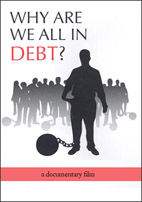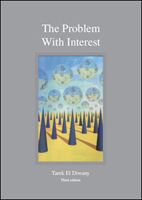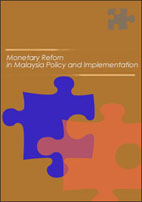This forthright commentary on the nature of modern money and banking has attracted a wide readership since it was first published in 1997. Discussions of secular economics are undertaken with reference to the ideas and laws found in religious belief systems to show that practical alternatives do exist to the institutional frameworks and product ranges of interest-based finance. The financial system that predominates in the world today is shown to be a key driver of environmental damage, increasing wealth inequality, economic instability (in particular endemic inflation), and the domination of large scale corporations over smaller owner-managed businesses. Empirical and theoretical research from a wide range of sources, both contemporary and historical, is given to support the various themes in this work.
This paper analyses the fractional reserve banking system and proposes a reform programme for application in Malaysia. The ceding to commercial banks of the right to create money has provided these institutions with a substantial economic advantage over the non-bank sector. This has resulted in a distortion in the allocation of society’s resources towards the provision of banking and financial services, and simultaneously damaged economic welfare in areas as diverse as wealth creation, wealth distribution, price and output volatility, and environmental sustainability. Removing the right of commercial banks to create money will lessen distortions in resource allocation, improve the quality of economic performance, and allow large scale net gains in wealth creation within the non-bank and non-financial sectors of the economy (Kreatoc Ltd., London, 2005, 57 pages).

Our documentary film Why are We All in Debt? provides a 26 minute introduction to the crucial facts on money and banking that every layman should know. Using simple terminology and clear graphics, the film explains why the current financial system inevitably produces boom and bust, endemic inflation and unrepayable debt. Emphasising both Muslim and Christian viewpoints, the film is highly suited for use in inter-faith discussion groups, and as an educational tool for new students who are not satisfied with mainstream explanations of financial economics. Produced by Fig Tree Film. Camera by Barry Jacklin and Abu Bakr Patterson. Sound by Ann Bradnam. Editing by Ahmed Khelloufi. Design by Spark Associates (Kreatoc Ltd. & MRDF, 26mins, 2009).


